Protein for poultry found harmful
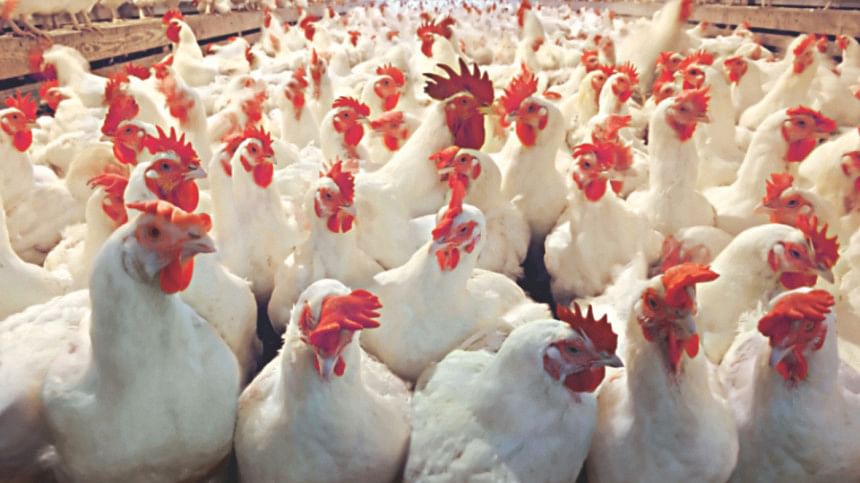
The government has banned import and sale of meat and bone meal, a protein concentrate for poultry, because of its health risks to human and livestock.
Commonly known as MBM, it can cause anthrax, antibiotic resistance, and even cancer, said officials at the Department of Livestock Services.
It comes in powder form, and is made from bones of animals, including cow and goat and the small amount of meat attached to the bones.
In most part of the world, it is no longer allowed in poultry feed. The EU banned it in 1994, India in 2001 and Thailand in 2017, officials said.
“The MBM is now considered a risky element in poultry feed because it can carry harmful virus, bacteria and other ingredients harmful for human and animal health,” said Kazi Wasi Uddin, additional secretary at the fisheries and livestock ministry.
Poultry is a major source of protein in the country and it needs to be safe, he added.
About 36 percent of human protein intake come from poultry, according to the ministry data.
Early this month, the fisheries and livestock ministry issued a circular on the ban, and would write to the commerce ministry for action to implement the decision.
Bangladesh Food Safety Authority has already instructed the customs authorities to enforce the ban on import, sale, storing and any other use of the feed.
ILLEGAL IMPORTS?
The feed is currently imported from European and Latin American countries, including Brazil, Argentina, Paraguay and Uruguay, officials said.
The Import Policy 2015-2018 had provisions for its import, but under certain conditions: it has to be free of antibiotics, chromium (which is linked to cancer), radiation, virus and bacteria.
But last year, authorities unearthed imports of low-quality MBM through Chittagong Port, ministry officials said.
The ministry then formed an expert committee, which recommended the ban.
“As we are almost self-sufficient in poultry … we are in the process of exporting it. So we need to be more careful about poultry feed,” Kazi Wasi told The Daily Star yesterday.
Dr ABM Khaleduzzaman, an assistant director at the Department of Livestock Services, said MBM met the required nutrition need of poultry. It is also comparatively cheaper.
The Tk 25,000-crore poultry industry in the country has a demand for 2.5 lakh tonnes of MBM a year. MBMs now cost about $600 a tonne, he added.
Officially, only 500 tonnes of the feed were imported in the last three years, said Debashish Nag, an adviser to Bangladesh Poultry Industries Coordination Council.
“But the product is available in the market,” he said.
This means traders have been importing MBM in the name of other fish meal or other materials, Debashish told The Daily Star yesterday.
The government could have better monitored and ensured the quality of MBM instead of banning its import altogether, he added.
But Dr Khaleduzzaman said it was difficult to monitor the quality and that the government made the appropriate decision.
The UK was first to identify in 1986 that MBM was linked to a viral disease called “Bovine Spongiform Encephalopathy” or mad cow, a transmittable, neuro-degenerative fatal brain disease of cattle, he said.
THE ALTERNATIVE?
Fish meal can be a major alternative to MBM. Besides, there are vegetable sources like soya bean and maize that can meet the protein need of poultry, said Kazi Wasi, the additional secretary at fisheries ministry.
Fish meal, made of dry sea fish, is already being used in the country as a source of nutrition for poultry, and there is nothing to be worried about it, the official added.
However, Debashish said the price of fish meal was higher than that of MBM and the ban would affect the local poultry market.
But Kazi Wasi said they already consulted the sector people before making the decision and that there were no major disagreements.
“A rise in poultry prices by a taka or two is not a big deal if it is safe. Public health is our main concern. And if we export poultry, importers are not going to compromise with the quality of the feed,” he said.

 For all latest news, follow The Daily Star's Google News channel.
For all latest news, follow The Daily Star's Google News channel. 


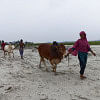
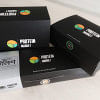
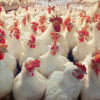
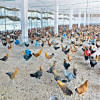


Comments